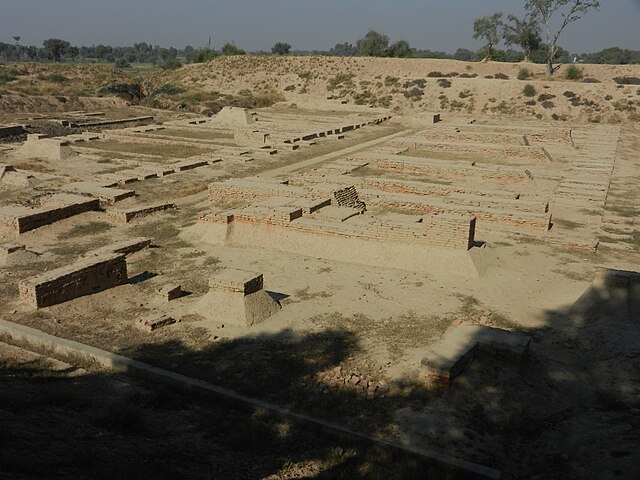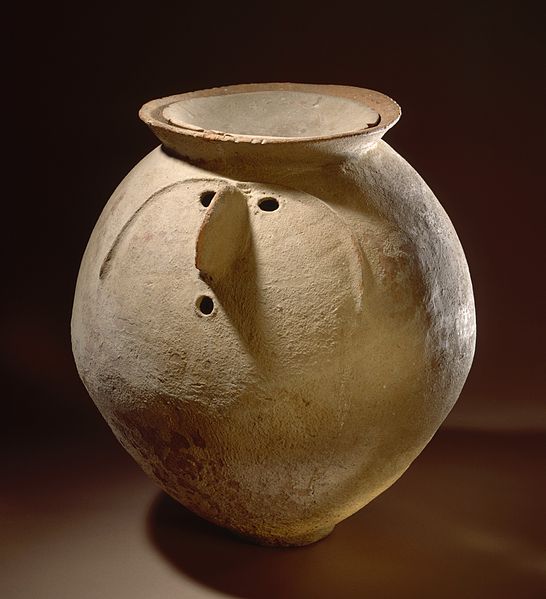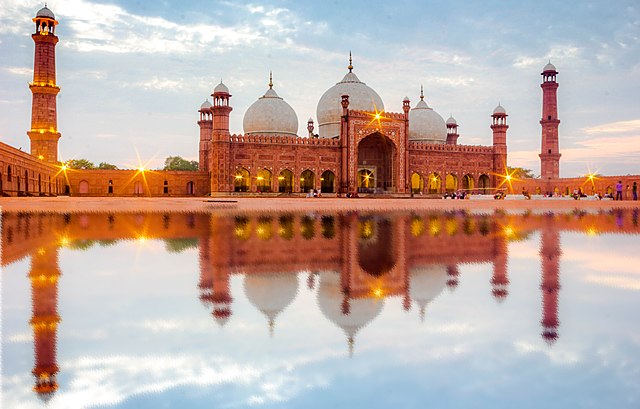Harappa is an archaeological site in Pakistan, about 25 km (16 mi) north of Sahiwal. The Bronze Age Harappan civilisation, now more often called the Indus Valley Civilisation, is named after the site, which takes its name from a modern village near the former course of the Ravi River, which now runs 8 km (5.0 mi) to the north. The core of the Harappan civilisation extended over a large area, from Gujarat in the south, across Sindh and Rajasthan and extending into Punjab and Haryana. Numerous sites have been found outside the core area, including some as far east as Uttar Pradesh and as far west as Sutkagen-dor on the Makran coast of Balochistan, not far from Iran.
A view of Harappa's Granary and Great Hall
Miniature Votive Images or Toy Models from Harappa, ca. 2500. Hand-modeled terra-cotta figurines with polychromy.
Harappa. Fragment of Large Deep Vessel, circa 2500 B.C. Red pottery with red and black slip-painted decoration, 4 15/16 × 6 1/8 in. (12.5 × 15.5 cm). Brooklyn Museum.
Image: Harappa red jasper male torso
Pakistan, officially the Islamic Republic of Pakistan, is a country in South Asia. It is the fifth-most populous country, with a population of over 241.5 million, having the second-largest Muslim population as of 2023. Islamabad is the nation's capital, while Karachi is its largest city and financial centre. Pakistan is the 33rd-largest country by area and the ninth-largest in Asia. Bounded by the Arabian Sea on the south, the Gulf of Oman on the southwest, and the Sir Creek on the southeast, it shares land borders with India to the east; Afghanistan to the west; Iran to the southwest; and China to the northeast. It shares a maritime border with Oman in the Gulf of Oman, and is separated from Tajikistan in the northwest by Afghanistan's narrow Wakhan Corridor.
Priest-King from Mohenjo-daro (c. 2500 BCE)
Cremation urn, Gandhara grave culture, Swat Valley, c. 1200 BCE
Standing Buddha from Gandhara (1st–2nd century CE)
Badshahi Mosque, Lahore








